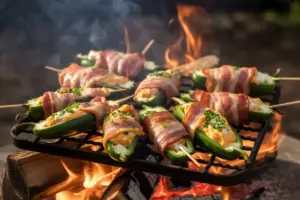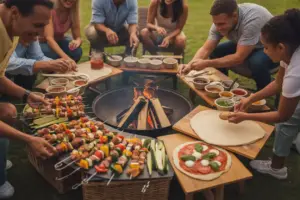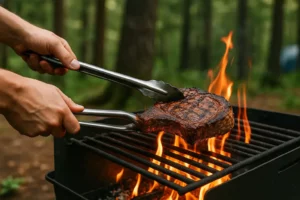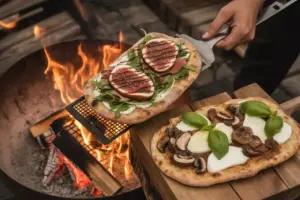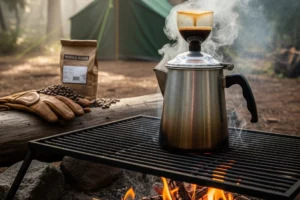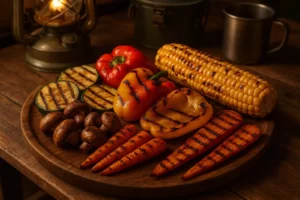5 Best Camping Coffee Makers for a Perfect Cup in the Woods
Nothing beats the smell of fresh coffee brewing while you watch the sunrise over your campsite. But finding what is the best camping coffee maker can make the difference between starting your outdoor adventure with energy or disappointment. Whether you’re backpacking through remote trails or enjoying a weekend at a developed campground, the right coffee maker transforms your morning routine from ordinary to extraordinary.
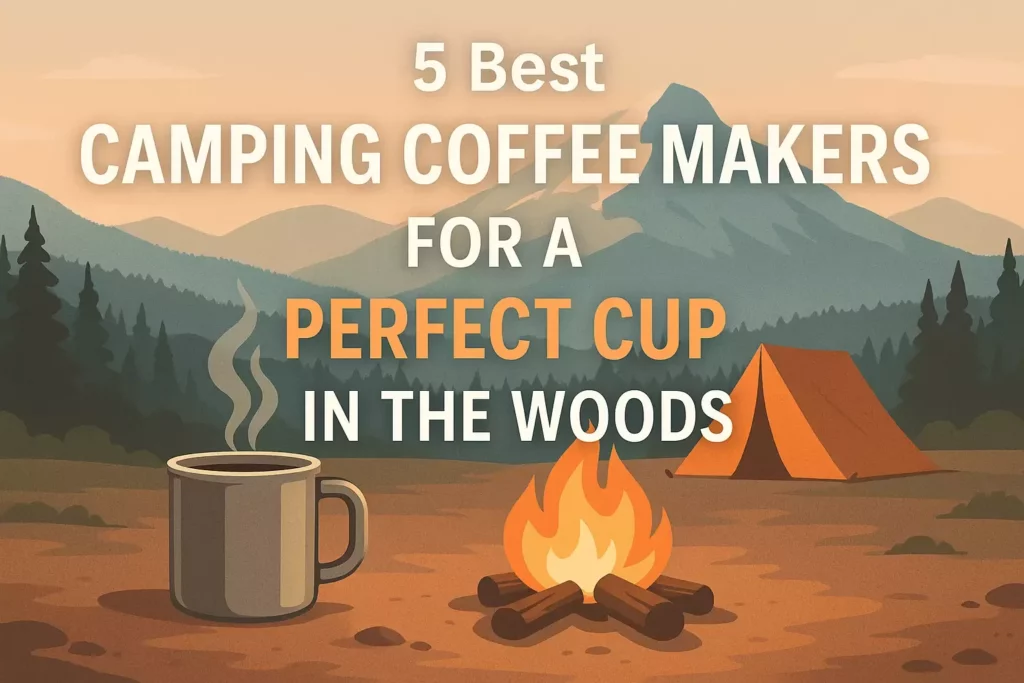
The perfect camping coffee maker combines durability, portability, and brewing quality. It needs to withstand outdoor conditions while delivering that essential caffeine boost that fuels your wilderness adventures. From ultralight pour-over systems to robust percolators, each brewing method offers unique advantages for different camping styles.
Key Takeaways
- French press coffee makers offer the best balance of flavor quality and ease of use for most campers
- Pour-over systems are ideal for ultralight backpacking due to their minimal weight and pack size
- Percolators work best for large groups and car camping where weight isn’t a primary concern
- Instant coffee makers provide the fastest brewing solution for early morning starts
- Durability and heat resistance are essential features for any camping coffee maker
What Makes a Great Camping Coffee Maker?
When determining what is the best camping coffee maker for your needs, several key factors separate excellent gear from mediocre equipment. The ideal camping coffee maker must balance multiple competing demands while delivering consistent results in challenging outdoor conditions.
Durability stands as the most critical factor. Your coffee maker needs to survive drops, temperature changes, and rough handling during transport. Materials like stainless steel, titanium, and BPA-free plastics offer the best combination of strength and weight savings.
Portability directly impacts your camping experience. Backpackers need ultralight solutions that pack small, while car campers can afford larger, more feature-rich options. Consider both weight and packed dimensions when making your choice.
Brewing quality determines whether you’ll actually enjoy your morning coffee. The best camping coffee makers extract optimal flavors while allowing you to control variables like steeping time and water temperature.
Ease of cleaning becomes crucial when you’re dealing with limited water supplies and no kitchen sink. Simple designs with fewer parts typically clean easier and break less frequently.
1. GSI Outdoors French Press – Best Overall
The GSI Outdoors French Press earns the top spot for delivering exceptional coffee quality in a rugged, camp-ready package. This 30-ounce stainless steel marvel combines the familiar brewing method most coffee lovers know with outdoor-specific durability features.
Key Features:
- Double-wall stainless steel construction provides excellent heat retention
- Silicone grip prevents burns and improves handling
- Durable plunger mechanism withstands repeated use
- Compact nesting design saves precious pack space
- 30-ounce capacity serves 3-4 people comfortably
The GSI French Press excels because it uses the immersion brewing method, which extracts maximum flavor from your coffee grounds. Simply add coarse-ground coffee, pour hot water, wait four minutes, and press the plunger. The result rivals coffee shop quality while sitting around your campfire.
Pros:
✅ Excellent coffee flavor and strength control
✅ Durable construction handles outdoor abuse
✅ Easy to clean with minimal water
✅ Works with any heat source
✅ Reasonable price point
Cons:
❌ Heavier than ultralight alternatives
❌ Glass versions can break (choose stainless steel)
❌ Requires coarse-ground coffee
This French press works perfectly for car camping setups where weight isn’t the primary concern. Its durability makes it an excellent choice for family camping trips where you need to brew coffee for multiple people.
2. Hario V60 Pour-Over – Best for Backpacking
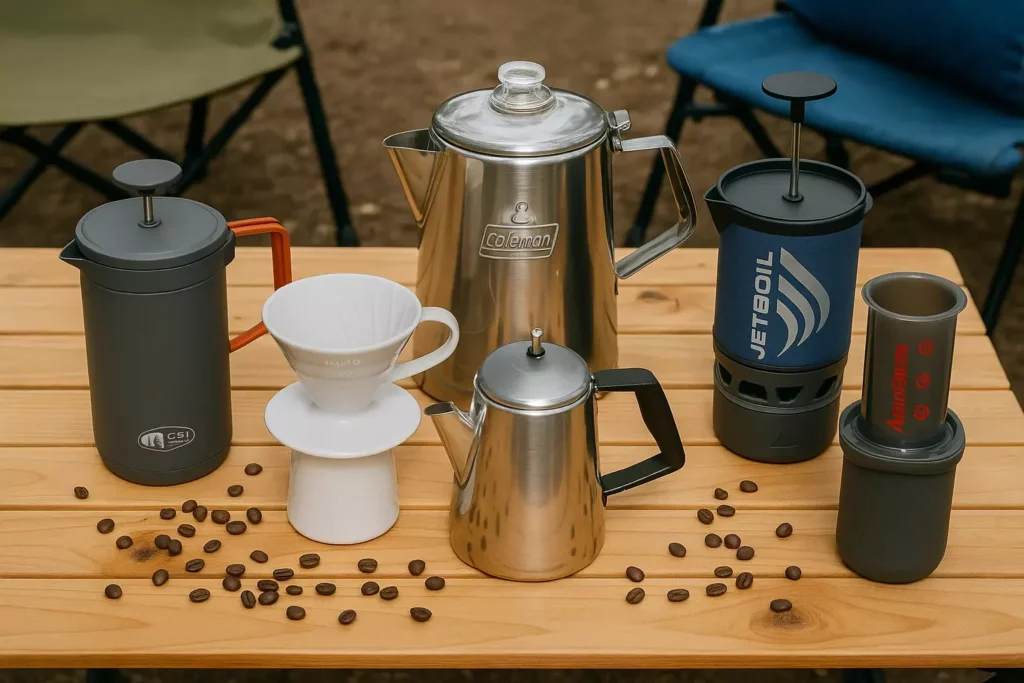
For ultralight enthusiasts wondering what is the best camping coffee maker that won’t add significant weight to their pack, the Hario V60 Pour-Over system offers an unbeatable combination of minimal weight and excellent coffee quality.
Key Features:
- Weighs only 3 ounces including dripper and filters
- Compact spiral design enhances water flow and extraction
- BPA-free plastic construction survives drops and impacts
- Fits most mugs and bottles for versatile brewing options
- Affordable filter replacements available worldwide
The V60’s spiral ridge design creates optimal water flow patterns, ensuring even saturation of coffee grounds. This scientific approach to brewing produces remarkably clean, flavorful coffee that highlights the unique characteristics of different coffee beans.
Brewing Process:
- Place filter in dripper and rinse with hot water
- Add medium-fine ground coffee (1:15 ratio)
- Pour small amount of water to “bloom” grounds
- Continue pouring in slow, circular motions
- Total brew time: 3-4 minutes
Pros:
✅ Ultralight weight perfect for backpacking
✅ Exceptional coffee clarity and flavor
✅ Inexpensive and widely available
✅ Easy to clean and maintain
✅ Compact pack size
Cons:
❌ Requires specific pouring technique
❌ Need to carry paper filters
❌ Single-cup brewing only
❌ Requires steady hand for optimal results
The Hario V60 pairs perfectly with ultralight backpacking gear and works excellently when you need to minimize weight without sacrificing coffee quality. It’s an ideal choice for solo adventurers or couples who don’t mind brewing individual cups.
3. Coleman Enamelware Percolator – Best for Large Groups
When car camping with a large group, the Coleman Enamelware Percolator answers the question of what is the best camping coffee maker for brewing substantial quantities of strong, traditional coffee. This 8-cup capacity workhorse handles the demands of feeding caffeine to multiple campers simultaneously.
Key Features:
- 8-cup capacity serves large groups efficiently
- Classic enamelware construction provides durability and heat distribution
- Traditional percolation method creates strong, robust coffee
- Works on any heat source including campfires and camp stoves
- Easy-to-see brewing process through the glass knob
Percolators work by cycling boiling water through coffee grounds multiple times, creating increasingly stronger coffee. While purists might argue this over-extracts the coffee, many campers prefer the robust, bold flavor that percolation produces.
Brewing Steps:
- Fill with cold water to desired level
- Add coarse-ground coffee to basket (1 tablespoon per cup)
- Place on heat source and bring to gentle boil
- Reduce heat and percolate for 5-10 minutes
- Remove from heat and let settle
Pros:
✅ Large capacity serves many people
✅ Extremely durable construction
✅ Works perfectly over campfires
✅ Creates strong, hot coffee
✅ Classic camping aesthetic
Cons:
❌ Heavy and bulky for backpacking
❌ Can over-extract coffee if not monitored
❌ Requires more cleanup than other methods
❌ Takes longer to brew
This percolator excels during family camping activities where you need to caffeinate adults while kids are getting ready for the day. It’s also perfect for campfire cooking setups where traditional methods enhance the outdoor experience.
4. Jetboil Coffee Press – Best All-in-One System
The Jetboil Coffee Press represents the pinnacle of integrated camping coffee systems, combining rapid water heating with French press brewing in one compact, efficient package. For campers seeking convenience without compromising quality, this system defines what is the best camping coffee maker for streamlined outdoor brewing.
Key Features:
- Integrated heating and brewing system eliminates multiple components
- 90-second boil time gets coffee ready fast
- French press attachment ensures optimal extraction
- Fuel-efficient design conserves precious canister fuel
- All-in-one storage keeps everything organized
The Jetboil system’s FluxRing technology maximizes heat transfer efficiency, boiling water faster while using less fuel than traditional camp stoves. The integrated French press attachment transforms the cooking pot into a coffee brewing vessel, eliminating the need for separate equipment.
Operation Process:
- Fill Jetboil cup with water
- Attach to burner and ignite
- Water boils in approximately 90 seconds
- Add coffee grounds and steep
- Insert French press and plunge
- Enjoy coffee directly from the cup
Pros:
✅ Incredibly fast brewing process
✅ Fuel-efficient operation
✅ Compact, integrated design
✅ Excellent heat retention
✅ Weather-resistant performance
Cons:
❌ Higher initial investment cost
❌ Proprietary fuel canisters required
❌ Heavier than ultralight alternatives
❌ Complex system with more potential failure points
The Jetboil Coffee Press works exceptionally well for cold weather camping where fast, hot coffee becomes essential for comfort and safety. Its efficiency makes it ideal for extended trips where fuel conservation matters.
5. AeroPress Go – Best for Versatility
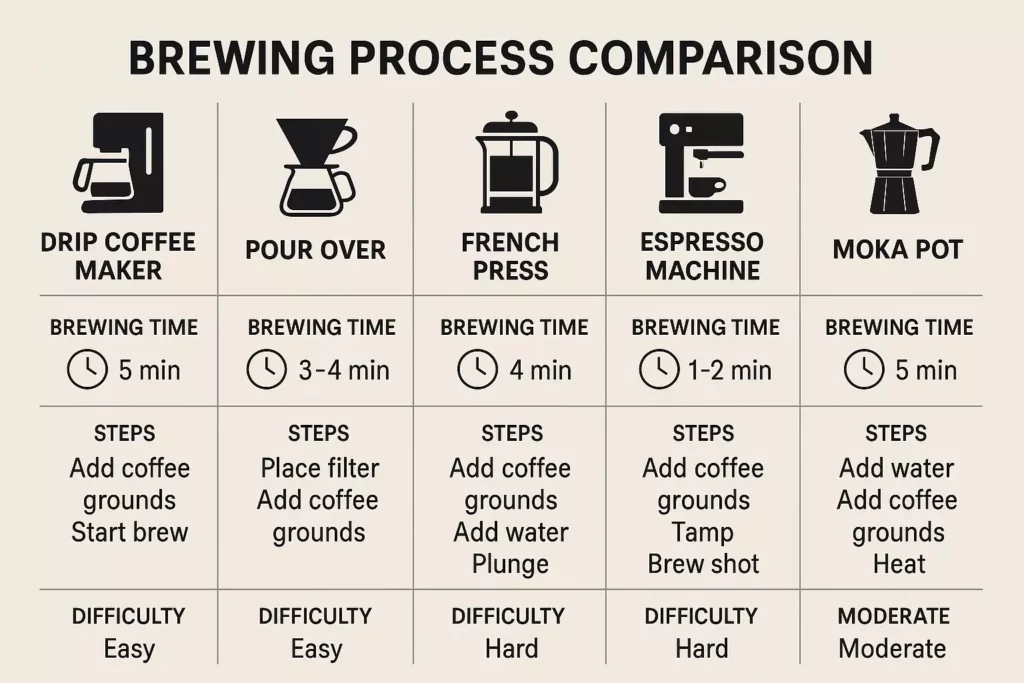
The AeroPress Go revolutionizes portable coffee brewing by combining immersion and pressure brewing methods in an incredibly versatile, travel-friendly package. This innovative system demonstrates what is the best camping coffee maker can be when engineering meets outdoor practicality.
Key Features:
- Dual brewing method combines immersion and pressure extraction
- 30-second brew time delivers fast results
- Virtually unbreakable polypropylene construction
- Self-contained design includes mug and storage
- Micro-filter technology produces clean, grit-free coffee
The AeroPress uses total immersion brewing followed by gentle pressure extraction, creating coffee with the body of French press and the clarity of pour-over methods. This unique approach produces exceptionally smooth coffee with minimal bitterness.
Brewing Method:
- Insert micro-filter and rinse
- Add fine-ground coffee to chamber
- Pour hot water and stir briefly
- Insert plunger and press gently
- Enjoy clean, flavorful coffee
Pros:
✅ Extremely fast brewing time
✅ Produces clean, smooth coffee
✅ Nearly indestructible construction
✅ Easy cleanup with minimal water
✅ Compact, self-contained system
Cons:
❌ Requires proprietary micro-filters
❌ Single-cup brewing only
❌ Unique brewing method needs practice
❌ Higher cost per cup due to filters
The AeroPress Go excels for solo camping adventures where quick, quality coffee enhances the outdoor experience. Its durability makes it perfect for rugged conditions where other brewing methods might fail.
🏕️ Camping Coffee Maker Comparison Tool
| Coffee Maker | Weight | Capacity | Price Range | Best For | Rating |
|---|---|---|---|---|---|
| Hario V60 Pour-Over | 3 oz | 1 cup | $15-25 | Ultralight Backpacking | ⭐⭐⭐⭐⭐ |
| GSI Outdoors French Press | 12 oz | 4 cups | $35-45 | Car Camping | ⭐⭐⭐⭐⭐ |
| Coleman Enamelware Percolator | 2.5 lbs | 8 cups | $25-35 | Large Groups | ⭐⭐⭐⭐ |
| Jetboil Coffee Press | 14 oz | 2 cups | $120-150 | Fast Brewing | ⭐⭐⭐⭐⭐ |
| AeroPress Go | 11 oz | 1 cup | $40-50 | Versatility | ⭐⭐⭐⭐⭐ |
Essential Features to Consider
When evaluating what is the best camping coffee maker for your specific needs, several technical features deserve careful consideration. These characteristics directly impact both the brewing quality and the practical usability of your coffee maker in outdoor environments.
Material Construction
Stainless steel offers the best durability and heat retention but adds weight to your pack. It resists dents, doesn’t retain flavors, and handles temperature extremes excellently. Premium options like titanium provide similar benefits with significant weight savings but at much higher costs.
BPA-free plastics reduce weight substantially while maintaining reasonable durability. Modern camping plastics resist impacts and temperature changes better than older formulations. However, they may retain coffee oils over time and can crack in extreme cold.
Silicone components enhance grip and heat protection while remaining flexible in cold conditions. Look for food-grade silicone that won’t degrade with repeated cleaning and temperature cycling.
Heat Source Compatibility
Your coffee maker must work with your preferred heating method. Gas camp stoves provide precise temperature control and work with most coffee makers. Alcohol stoves burn cooler and may require longer brewing times with some methods.
Campfire compatibility requires coffee makers with appropriate handles and heat-resistant construction. Some delicate brewing methods work poorly over open flames due to uneven heating and temperature control challenges.
Brewing Time Considerations
Fast brewing methods (1-3 minutes) work well for early morning starts and cold weather conditions. The AeroPress and pour-over methods excel here, getting hot coffee ready quickly.
Medium brewing times (4-6 minutes) allow for optimal extraction without rushing. French press and most immersion methods fall into this category, providing excellent flavor development.
Slow brewing methods (8-15 minutes) like percolation work best when time isn’t critical and you’re brewing for multiple people. These methods often produce stronger coffee preferred by many outdoor enthusiasts.
Tips for Better Camping Coffee
Achieving excellent coffee in the wilderness requires more than just good equipment. Understanding the fundamentals of coffee brewing helps you maximize the potential of any camping coffee maker while working within outdoor limitations.
Water Quality Matters
Water temperature significantly impacts extraction quality. Aim for 195-205°F (90-96°C) for optimal brewing. At high altitudes, water boils at lower temperatures, so adjust your brewing time accordingly. Consider water purification methods to ensure clean, safe brewing water.
Water-to-coffee ratios determine strength and flavor balance. Start with 1:15 ratio (1 gram coffee to 15 grams water) and adjust to taste. Stronger ratios (1:12) work well for cold mornings when you need extra caffeine.
Coffee Selection and Storage
Pre-ground vs. whole bean presents a classic trade-off. Whole beans maintain freshness longer but require a grinder, adding weight and complexity. Pre-ground coffee offers convenience but loses flavor more quickly.
Storage solutions protect coffee from moisture and odors. Vacuum-sealed bags work well for short trips, while airtight containers provide better protection for extended adventures. Keep coffee cool and dry whenever possible.
Grinding Considerations
Grind size dramatically affects extraction and flavor. Coarse grinds work best for French press and percolators, preventing over-extraction and reducing sediment. Medium grinds suit pour-over methods, while fine grinds optimize AeroPress brewing.
Portable grinders add versatility but increase weight and complexity. Manual grinders designed for camping offer good performance without requiring power sources. Consider whether the improved flavor justifies the additional gear.
Altitude Adjustments
High altitude brewing requires modifications due to lower air pressure and boiling points. Water boils at lower temperatures, potentially under-extracting coffee. Increase brewing time or use slightly finer grinds to compensate.
Cold weather considerations affect both brewing and equipment performance. Keep coffee makers warm when possible, as cold equipment can shock hot water and affect extraction. Some materials become brittle in extreme cold.
Maintenance and Care
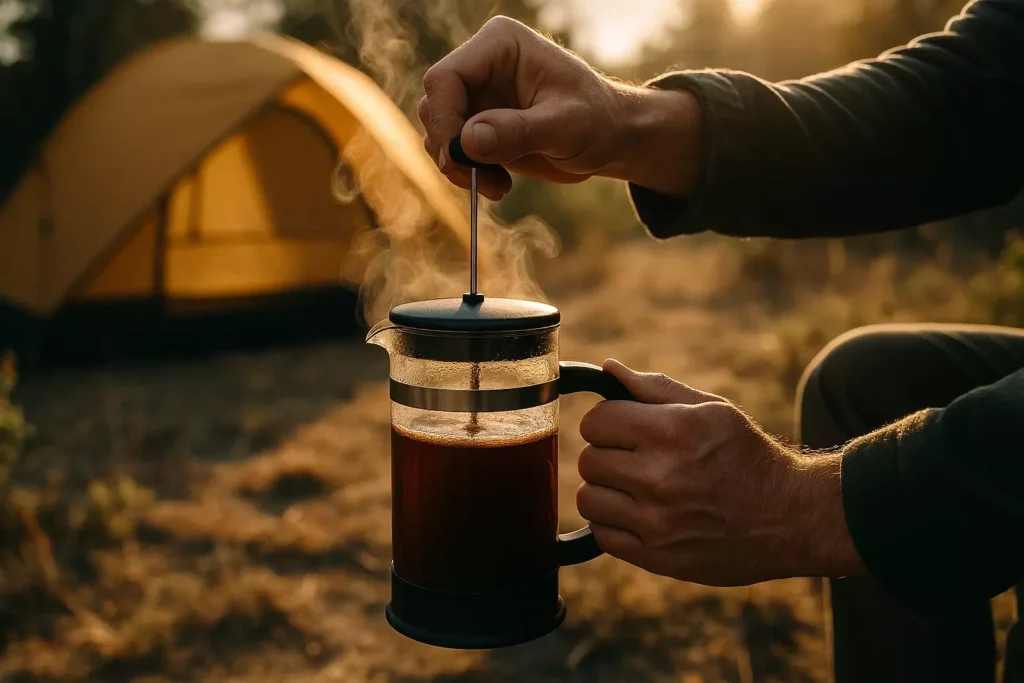
Proper maintenance extends the life of your camping coffee maker while ensuring consistent brewing quality. Outdoor conditions accelerate wear and can introduce contaminants that affect both performance and taste.
Daily Cleaning Routine
Immediate rinsing after each use prevents coffee oils from building up and affecting future brews. Use hot water when available, but cold water cleaning works adequately when necessary.
Minimal water cleaning conserves precious water supplies while maintaining hygiene. Wipe components with damp cloths, focusing on areas that contact coffee grounds and brewed coffee.
Deep Cleaning Procedures
Weekly deep cleaning during extended trips removes accumulated oils and residues. Disassemble removable parts and clean thoroughly with biodegradable soap when water supplies permit.
Descaling mineral buildup becomes important in areas with hard water. Use diluted vinegar solutions or specialized descaling products designed for camping equipment.
Storage and Transport
Protective storage prevents damage during transport and storage. Nest components efficiently to save space while providing mutual protection. Consider dedicated stuff sacks or protective cases for delicate equipment.
Drying thoroughly before storage prevents mold and corrosion. Pay special attention to threaded connections and crevices where moisture can hide. Some coffee makers benefit from partial disassembly for complete drying.
Budget Considerations
Understanding the total cost of ownership helps you make informed decisions about what is the best camping coffee maker within your budget constraints. Initial purchase price represents only part of the long-term investment.
Initial Investment
Entry-level options ($15-30) include basic pour-over systems and simple French presses. These provide good coffee quality with minimal features and basic construction materials.
Mid-range choices ($30-80) offer better materials, improved durability, and enhanced features. Most campers find excellent value in this price range, balancing performance with affordability.
Premium systems ($80-200+) provide advanced features, superior materials, and specialized designs. Consider whether the additional benefits justify the higher costs for your camping style.
Ongoing Costs
Filter requirements add recurring expenses for some brewing methods. Paper filters cost pennies per cup but accumulate over time. Metal filters eliminate ongoing costs but may affect coffee clarity.
Replacement parts availability affects long-term usability. Choose systems with readily available spare parts and good manufacturer support. Some specialized components can be expensive to replace.
Value Analysis
Cost per cup calculations help compare different systems over time. Include initial purchase price, ongoing consumables, and expected lifespan. Sometimes premium equipment offers better long-term value through durability and performance.
Multi-use functionality adds value when equipment serves multiple purposes. Some systems work for cooking other foods or beverages, increasing their utility and justifying higher costs.
Conclusion
Choosing what is the best camping coffee maker depends entirely on your specific camping style, group size, and personal preferences. The GSI Outdoors French Press offers the best overall balance of quality, durability, and ease of use for most campers. Ultralight backpackers will appreciate the Hario V60’s minimal weight and excellent coffee quality, while large groups benefit from the Coleman Percolator’s substantial capacity.
For technology enthusiasts seeking convenience, the Jetboil Coffee Press delivers unmatched speed and efficiency. The AeroPress Go provides exceptional versatility and unique brewing capabilities for adventurous coffee lovers willing to try something different.
Remember that the perfect camping coffee maker enhances your outdoor experience without creating unnecessary complications. Consider your typical camping scenarios, group size, and weight limitations when making your decision. Invest in quality equipment that matches your needs, and you’ll enjoy exceptional coffee that fuels countless outdoor adventures.
Start by identifying your primary camping style and group size, then test different brewing methods at home before committing to wilderness adventures. Your morning coffee ritual should energize your outdoor experiences, not complicate them. Choose wisely, and every sunrise in the wilderness becomes an opportunity for the perfect cup of coffee.

